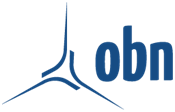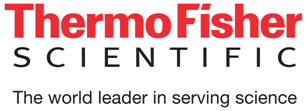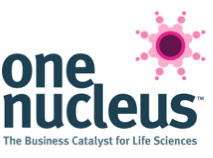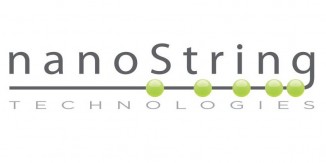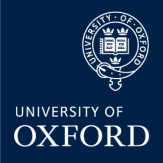Branch
Select your branch
Innovation in Immunotherapy
Description
Immunotherapy has been hailed as the biggest breakthrough in cancer treatment for decades. The remarkable clinical efficiency of immunotherapy agents coupled with advances in academic research, growth of biotechs and pharmaceutical partnering all indicate that immunotherapy has the potential to revolutionise modern medicine. Innovation Forum Oxford is bringing together leading experts from academia, industry, the NHS and investors to discuss current trends and the future of immunotherapy followed by networking opportunities. This unique event will take place in Lecture Theatre 2 at the John Radcliffe Hospital, Oxford on the 11th April 2016.
This is a fantastic opportunity to build links between industry, academia, clinicians and investors in order to foster productive translational collaborations. Space is limited to 300 places.
Schedule
Registration
Welcome from IFO
Immunotherapy: the past and the present
Prof Vincenzo Cerundolo (Professor of Immunology at Oxford University and Consultant Physician)
Current trends in Immunotherapy
Immuno-oncology, harnessing the immune system to combat cancer
Dr Robert Wilkinson (Director of Oncology Research, MedImmune Ltd)
Development of a novel immunotherapy from bench to bedside
Prof Paresh Vyas (Professor of Haematology at Oxford University and Consultant Clinician)
ImmTACs for targeted cancer therapy
Dr Bent Jakobsen (CSO of Immunocore Ltd)
Next-generation engineered CAR T-cells
Prof Martin Pule (Clinical Senior Lecturer, UCL and Consultant Haematologist, Founder of Autolus Ltd)
New ventures
Vaccitech – new uses of vaccine technologies
Prof Sarah Gilbert (Professor of Vaccinology at Oxford University, Founder of Vaccitech)
Panel discussion: The Future of Innovation in Immunotherapy
Prof Paresh Vyas (Professor of Haematology at Oxford University and Consultant Clinician)
Dr Eliot Forster (CEO of Immunocore Ltd)
Dr Robert Wilkinson (Director of Oncology Research, Medimmune Ltd)
Prof Mark Middleton (Lead Cancer Clinician for the Oxford University Hospitals NHS Foundation Trust and deputy director of the Cancer Research UK Oxford Centre)
Dr Lucinda Crabtree (Senior Investment Analyst, Woodford Investment Management LLP)
Networking opportunities over drinks and nibbles
Speakers
Vincenzo Cerundolo is Professor of Immunology and Director of the MRC Human Immunology Unit of the University of Oxford.Hegraduated in Medicine at the University of Padua, Italy where he completed his PhD in Immunology, and subsequently moved to the UK as an EMBO Fellow to work with Professor Alain Townsend on antigen presentation. In 1990 he described the first humanantigen processing deficient cells, which led to the cloning and characterisation ofTAP1 and TAP2 genes.
Vincenzo was appointed Professor of Immunology at the University of Oxford in 2000 and became Director of the MRC Human Immunology Unit in 2010. In 2012 he was appointed Head of the Investigative Medicine Division of the newly-formed Radcliffe Department of Medicine of the University of Oxford.
He is a Fellow of Merton College, of the Royal College of Pathologists, Batsheva Fellow of the Israeli Academy of Medical Sciences, and a Fellow of the Academy of Medical Sciences, UK.
Research carried out in Professor Cerundolo’s laboratory is mainly focussed on gaining a better understanding of the mechanisms that control the cell-cell interplay required for optimal expansion and activation of tumour-specific T cell populations and to apply this knowledge to the development of better treatment strategies in cancer patients.
Based in Cambridge, with a team of talented scientists, Dr Wilkinson is charged with the generation and delivery of novel candidate biotherapeutics. His team, uses the latest therapeutic strategies (incl. antibody and protein based platforms, oncolyticvirotherapy and oligonucleotides) and is focused on immuno-oncology, as well as tumour targeted therapies, such as antibody-drug conjugates (ADCs). Molecules to come out of the group include the GITRL agonist, MEDI1873, and anti-PD-L1 antibody, Durvalumab, which is now in Phase III clinical trials in a range of cancer types.Previously, Dr Wilkinson has held senior leadership roles with AstraZeneca and Imperial Cancer Research Fund Technology (now Cancer Research Technology) and received his PhD in Experimental Immunology from The University of Birmingham Medical School; and has co-authored over 50 publications in the field of drug discovery, immunology and cancer.
Professor of Haematology at Oxford University. He studied medicine at Cambridge then Oxford. After completing his general medical training in London, he did his PhD with Professor Higgs and Professor Sir Weatherall at the MRC Molecular Haematology Unit, Oxford. He completed his specialist training in Haematology at the Department of Haematology, Royal Free Hospital London under Professors Hoffbrand, Prentice and Metha. After this he spent three years doing a post-doctoral fellowship with Professor Orkin at the Department of Haematology at Children’s Hospital Harvard University. For the last 14 years he has been working as a Consultant Haematologist with a clinical practice in myeloid disorders (MDS, AML and MPD) in Oxford and runs an active research laboratory in the MRC Molecular Haematology Unit, Weatherall Institute of Molecular Medicine, University of Oxford. His research focuses on molecular and cellular biology of AML and MDS with specific interest in purification and therapeutic targeting of myeloid preleukaemic and leukaemic stem cells. He is a member of the UK NCRN AML Working Party, NCRN MDS Clinical trial Group, Lead for Myeloid Disorders for the Thames Valley.
Dr Bent Jakobsen co-founded Immunocore in 2008 and has served as Chief Scientific Officer and Executive Board Member since that time. He is also scientific co-founder of Adaptimmune Ltd, where he provides strategic and advisory input as well as oversight of research programmes. He was previously Chief Scientific Officer of Avidex, a company he founded in 1999 as a spin-out from the University of Oxford to develop novel T cell receptor-based drugs. Dr Jakobsen was head of the Immune Receptor Group at the Institute of Molecular Medicine (IMM) in Oxford from 1993 to July 2000. Prior to this, he was a Senior Research Fellow of the Danish Natural Research Council, Aarhus, Denmark, and undertook post-doctoral research at the Laboratory of Molecular Biology of the Medical Research Council in Cambridge. Dr Jakobsen has authored numerous scientific papers and is considered a world expert in the field of T cell receptor immunology.
Dr Martin Pule started his scientific career working in Baylor College of Medicine, Houston, as a traveling Fulbright scholar. Here, he became the first to describe third generation forms of CARS, which transmit activation, proliferation and survival signal to the transduced T-cells. He also engineered a novel Suicide gene: "iCasp9". His work at Baylor, culminated in the testing of a CAR in a clinical study in children, with a solid cancer called Neuroblastoma.
Martin is the Clinical Senior Lecturer in the Department of Haematology at UCL (University College London) Cancer Institute. His Research is focused on many aspects of genetic engineering of T-cells for cancer treatment, with particular focus on CARs. He also coordinators the EU FP7 ATECT consortium; and the National Institute of Health Research (NIHR) CAR19 i4i programme.As well as being a senior Lecturer in UCL, Martin holds an honorary consultant post as a clinical Haematologist in the UCL Hospital; lymphoma being his main clinical interest.In 2014 Martin founded Autolus Ltd; a synthetic biology / CAR company which was the largest series A in European biotech. As Chief Scientific Officer, he is overseeing the development of next-generation engineered immune-cell technology.
Sarah Gilbert’s chief research interest is the development of viral vectored vaccines that work by inducing strong and protective T and B cell responses. Following the discovery that heterologous prime-boost immunisation, in which the same antigen is delivered in first one vector and then another, is highly immunogenic in pre-clinical studies, she designed antigen inserts for, and produced DNA, MVA and fowlpox vaccines which were then manufactured for clinical trials in both the malaria and tuberculosis vaccine clinical programmes at the Jenner Institute.
She has also applied the same principles of vaccine development, pre-clinical and clinical testing to produce new vaccines against influenza, and now leads this Jenner Institute programme. The aim of this research is to develop an improved influenza vaccine that is highly effective against all strains of influenza A, including those that cause pandemics.
Using viral vectors to make new vaccines against emerging pathogens is a research area that gained prominence during the Ebola outbreak, and Prof Gilbert was involved in rapid clinical development of these vaccines.
Dr Eliot Forster joined Immunocore as Chief Executive Officer in January 2015. He has almost 25 years of experience in the pharmaceutical and biotechnology industry. Dr Forster previously served as Chief Executive Officer of Creabilis since 2010 and prior to that role was Chief Executive Officer of US biotechnology company, Solace Pharmaceuticals Inc. His other previous roles include Head of EU Development and Operations for the EU and Asia at Pfizer, where he was responsible for drug development activities across multiple geographies and brought several drugs to market, and Clinical Research Manager at GlaxoSmithKline. Dr Forster is currently Chairman of the MedCity project that aims to grow a world-leading life sciences cluster in the south east of England. He holds a PhD in neurophysiology from Liverpool University and an MBA from Henley Management College.
Mark Middleton is Professor of Experimental Cancer Medicine in the Department of Oncology and consultant Medical Oncologist at the Oxford Cancer and Haematology Centre. Mark is the Lead Cancer Clinician for the Oxford University Hospitals NHS Trust and deputy director of the Cancer Research UK Oxford Centre. He directs the EPCTU and the Cancer Theme of the NIHR Biomedical Research Centre. He studied medicine at Cambridge and Oxford and trained in medical oncology at the Christie Hospital. Mark is a member of the International Melanoma Working Group and of the NCRI Melanoma Clinical Studies Group. He leads several clinical trials in the national portfolio.
Lucinda is a highly experienced professional who brings invaluable expertise and knowledge to the Woodford investment team. Her diverse career history includes analytical roles in large international banks focused on the pharmaceutical and biotechnology sectors, as well as significant experience in the pharmaceutical industry itself.
Lucinda graduated from University College, London in 2004, having achieved a BSc (first class) in physiology and pharmacology and a PhD in pharmacology.
Her illustrious career to date includes roles at IMS Health, Jefferies, JP Morgan / Bear Stearns, AstraZeneca, Goldman Sachs, Grunenthal and (most recently) Panmure Gordon.
Lucinda joined the Woodford Investment team in 2015.
Request sponsorship opportunities package
Sponsor this event













